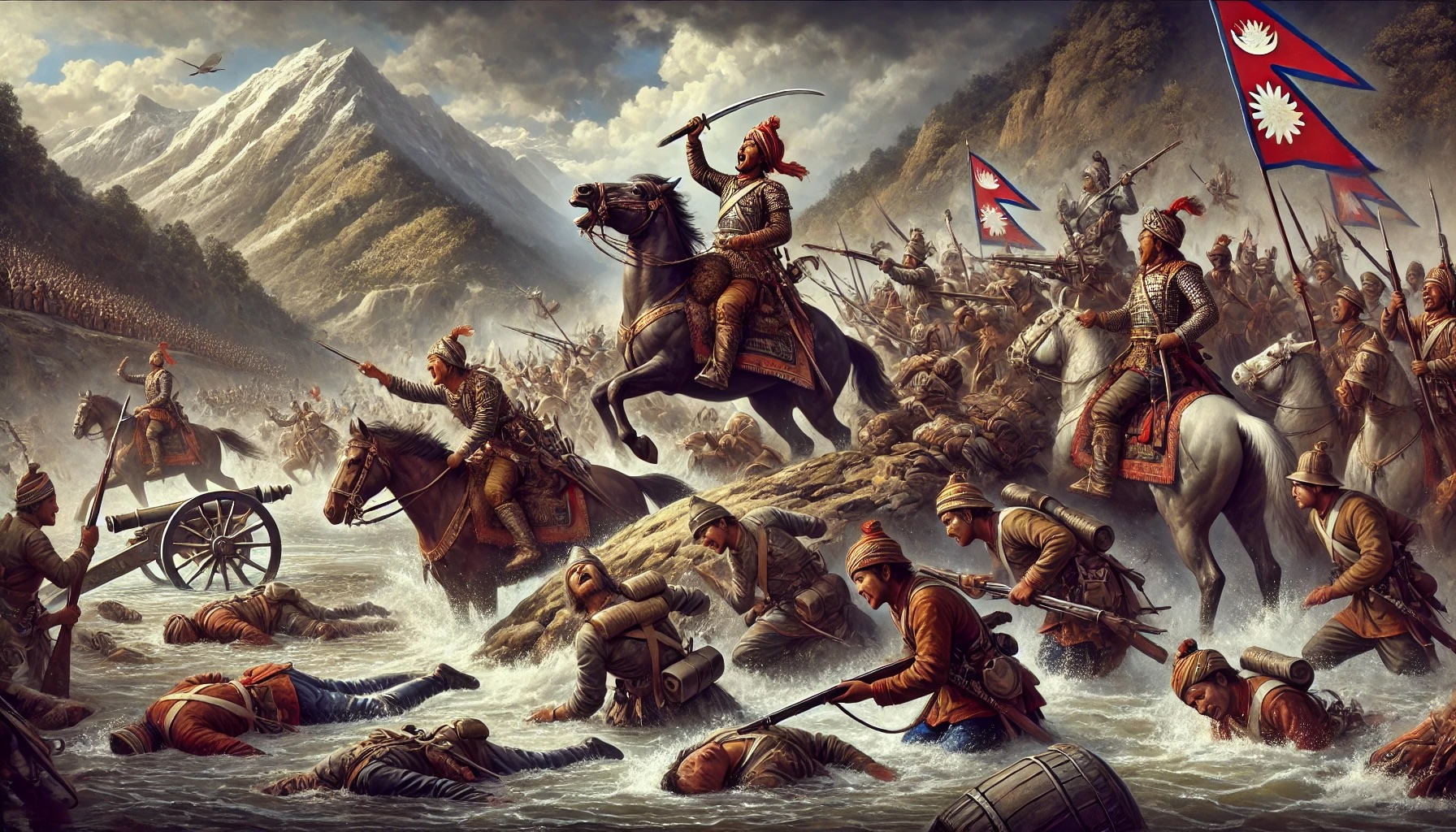Nepal’s Triumph Over China in 1791-92: A Forgotten Victory Unveiled

Yalamaya Kendra, Patan Dhoka
In a historic lecture at Yalamaya Kendra, Prof. Dr. Axel Michaels, a distinguished Indologist from Heidelberg University, dismantled long-standing misconceptions about the Sino-Nepalese War of 1791-92, asserting that Nepal was not defeated but victorious. Hosted by Kanak Mani Dixit, a renowned Nepali journalist and historian, the lecture revealed compelling evidence that refutes the traditional Chinese narrative of Nepal’s subjugation.
For more than two centuries, historical accounts, primarily based on Chinese and Tibetan sources, have claimed that Nepal suffered defeat, was forced to pay tribute to the Qing Emperor, and became a vassal state. However, newly discovered documents, particularly the Sandhi war report of 1793, provide irrefutable evidence that Nepal’s resistance at the Battle of Betrawati led to China’s retreat, turning the war’s outcome in Nepal’s favour.
Rewriting History: The True Story of the Sino-Nepalese War
The Sino-Gorkha War of 1791-92 stemmed from trade and currency disputes between Nepal and Tibet. The Gorkhas, seeking economic dominance, launched invasions into Tibet in 1788 and 1791, prompting the Qing Dynasty to intervene. Emperor Qianlong dispatched General Fuk’anggan to suppress the Nepalese offensive, and Qing forces advanced as far as Nuwakot, just a day’s march from Kathmandu.
For centuries, Chinese historical records have glorified this campaign, depicting Nepal as subjugated and framing its subsequent diplomatic missions to Beijing as acts of vassalage. Chinese inscriptions in Lhasa, imperial paintings, and official Qing texts reinforced the notion that Nepal had bowed to Qing authority.
However, Prof. Michaels debunked this myth, arguing that history is often shaped by political agendas rather than objective truth. His analysis of 28 newly discovered folios contradicts Chinese claims, showing that Nepal forced the Qing army into retreat, leading to a peace settlement on equal terms.
Battle of Betrawati: The Turning Point
The decisive battle took place at Betrawati, near Nuwakot, where Gorkha forces, despite being outnumbered, launched a brilliant counteroffensive. According to the Sandhi war report, panic spread among Qing soldiers, leading to chaos, mass casualties, and retreat. Many Qing troops drowned in the Betrawati River while fleeing, and abandoned their weapons and cannons in desperation.
Recognizing imminent defeat, General Fuk’anggan abandoned his campaign to capture Kathmandu and instead proposed a peace treaty. In a letter to King Rana Bahadur Shah, he wrote:
"In war, victories and defeats are natural. Despite our setbacks, let us settle this conflict. I shall not advance further. Instead, I will withdraw my troops and offer valuable gifts to the Gorkha Maharaja."
This statement alone disproves the traditional Chinese claim that Nepal surrendered and instead confirms that China sought peace after suffering heavy losses.
Diplomatic Negotiations: A Deal on Nepal’s Terms
The Treaty of Betrawati, signed following the Qing retreat, allowed both sides to save face, but Nepal retained its sovereignty and independence. A major controversy surrounding this treaty is the interpretation of the gifts exchangedbetween Nepal and China.
Chinese sources present these gifts as tribute, claiming Nepal acknowledged Qing supremacy.
Nepali sources, including the Sandhi war report, define them as diplomatic gifts (saugat, koseli)—a sign of mutual respect, not subordination.
Prof. Michaels firmly asserted that unlike Tibet, which became an integral part of the Qing administration, Nepal remained independent, controlling its internal and external affairs without interference.
Moreover, despite the treaty promising Chinese military assistance to Nepal, China failed to support Nepal during the Anglo-Nepal War (1814-16), further proving that Nepal was never a vassal of the Qing Dynasty.
Nepal’s Victory: A Military, Diplomatic, and Psychological Triumph
Prof. Michaels emphasized that victory in war is not determined only by battlefield conquests but also by long-term political and diplomatic gains. In this sense, Nepal’s successful resistance against the Qing invasion and its ability to negotiate peace on equal terms demonstrate an undeniable victory.
Key Takeaways from the War:
✅ Nepal remained independent—never occupied by Qing forces.
✅ China failed to capture Kathmandu and retreated after Betrawati’s defeat.
✅ Nepal reframed the peace treaty, ensuring its relations with China remained diplomatic, not tributary.
✅ China gained influence over Tibet, but Nepal retained its sovereignty and continued expansion into Kumaon and Garhwal.
A Call to Reassess Historical Narratives
Prof. Michaels’ lecture was a powerful challenge to the long-standing Chinese narrative, urging historians to re-examine primary sources rather than blindly accepting Qing-era records. He called on Nepali scholars to reclaim their history and present it with the accuracy and depth it deserves.
"The Sino-Nepalese War was never a one-sided Qing victory," said Prof. Michaels. "It was a geopolitical conflict that Nepal successfully navigated, emerging not as a vassal, but as a strong and independent state."
Kanak Mani Dixit, who hosted the event, added:
"Nepal’s history has often been overshadowed by external narratives. Prof. Michaels' research is a wake-up call to reassert our historical truth and national identity."
A Moment of National Pride
The event at Yalamaya Kendra was more than a lecture—it was a historic moment of national awakening. It challenged centuries-old misconceptions, restored Nepal’s rightful place in history, and reaffirmed its legacy of sovereignty and resilience.
As Nepal faces modern geopolitical challenges, this forgotten victory of 1791-92 serves as a reminder of its strength and strategic acumen. The true legacy of the war is clear:
Nepal did not surrender. Nepal did not lose.
Nepal won.
Glory to Nepal!




![From Kathmandu to the World: How Excel Students Are Winning Big [Admission Open]](https://nepalaaja.com/img/70194/medium/excel-college-info-eng-nep-2342.jpg)
